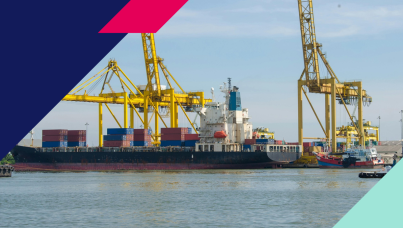Four In Ten (41%) Think Canada Should Do More For Refugees Than Other Countries Do
Toronto, ON - Speaking about Canada's policies on refugees, compared to other countries similar to Canada, four in ten (41%) Canadians think Canada should do more for refugees than other countries do. Conversely, just one in ten (8%) Canadians think that Canada should do less than what other similarly-developed countries do for refugees, while nearly half (48%) maintain that Canada should do the same amount for refugees as whatever the average country does.
When compared to a survey of Canadians conducted in 1987, more Canadians now than twenty years ago suggest that Canada should do more for refugees than other countries do. While in 1987, just one quarter (24%) of Canadians thought that Canada should do more than other countries, four in ten (41%) now believe so, representing an increase of 17 points. Furthermore, while nearly one quarter (22%), in 1987, believed that Canada should in fact do less for refugees than other countries, just 8% now think this, representing a drop of 14 points. Holding steady over the past 20 years, roughly half (47% in 1987, 48% in 2007) believe Canada should do whatever the average country does for refugees.
Adjudicating the cases of those who apply for refugee status is no doubt tricky business. When asked whether or not Canada should err on the side of caution or compassion, nearly one half (48%) of Canadians indicate that immigration officials should be more worried about `accidentally letting someone stay in Canada when they are not a legitimate refugee'. However, Canadians are almost evenly split on this matter, with only a slightly smaller proportion (43%) indicating that immigration officials should be more worried about `forcing someone to return to their country when in fact they really deserve to be considered a refugee. One in ten (9%) Canadians do not know which possibility immigration officials should be more worried about.
These are the findings of an Ipsos Reid poll conducted exclusively for CanWest News Service and Global Television from June 12 to June 14, 2007. For the survey, a representative randomly selected sample of 1002 adults was interviewed by telephone. With a sample of this size, the results are considered accurate to within 177 3.1 percentage points, 19 times out of 20, of what they would have been had the entire adult population been polled. The margin of error will be larger within regions and for other sub-groupings of the survey population. These data were weighted to ensure that the sample's regional and age/sex composition reflects that of the actual Canadian population according to Census data. *Question 2 was fielded from June 5 to June 7 to 1005 adults.
Four In Ten (41%) Think Canada Should Do More Than Average...
Compared with how other countries handle refugees, four in ten (41%) Canadians think Canada should do more for refugees than other countries do, while just one in ten (8%) Canadians think that Canada should do less than what other similarly-developed countries do for refugees. Nearly half (48%) maintain that Canada should do the same amount for refugees as whatever the average country does.
- Residents of British Columbia are more likely than those in the rest of Canada to indicate that Canada should do more than the average country, with over one half (51%) indicating so.
- Residents of Quebec are the least likely to say this, with just one quarter (24%) indicating that Canada should do more for refugees than the average country.
- Younger Canadians, aged 18 to 34, are more likely than older Canadians, aged 55 and older, to suggest that Canada should do more than other countries (51% to 32%, respectively).
- Urban Canadians are more likely (42%) than rural Canadians (34%) to agree with this sentiment.
- 9% of Ontarians and Quebecers believe that Canada should do less than other countries, while just 3% in Saskatchewan and Manitoba believe this.
More Canadians now than twenty years ago suggest that Canada should do more for refugees than other countries do. While in 1987, just one quarter (24%) of Canadians thought that Canada should do more than other countries, four in ten (41%) now believe so, representing an increase of 17 points. Furthermore, while nearly one quarter (22%), in 1987, believed that Canada should in fact do less for refugees than other countries, just 8% now think this, representing a drop of 14 points.
- Residents of Atlantic Canada and British Columbia are driving this change in opinion, with Atlantic Canadians being 25 points more likely now than they were in 1987 to say that Canada should do more for refugees than what other countries do (48% in 2007, 23% in 1987, and British Columbians being 23 points more likely now than they were in 1987 to say the same thing (51% in 2007, 28% in 1987).
- Representing the least amount of growth in the last twenty years, Quebecers are only 9 points more likely now than in 1987 to believe that Canada should do more than other countries (24% in 2007, 15% in 1987).
- While only three in ten (30%) young Canadians agreed with this sentiment in 1987, a majority (51%) now agree that Canada should do more than the average country.
Canadians Split On Primary Concern For Immigration Officials...
When asked which scenario Canadian immigration workers should more worried about, nearly one half (48%) agreed that `accidentally letting someone stay in Canada when they are not a legitimate refugee' is the more important concern. However, with almost as much support, 43% of Canadians maintain that `forcing someone to return to their country when in fact they really deserve to be considered a refugee' is what Canadian immigration officials should be more worried about.
- Fully one half of residents in Saskatchewan and Manitoba (50%) agree that immigration officials should be more worried about forcing someone to return to their country when in fact they really deserve to be considered a refugee, while just three in ten (30%) say Canada should be more concerned with accidentally letting someone stay who is not a legitimate refugee.
- A solid majority (56%) of British Columbians say the bigger concern is accidentally letting someone stay in Canada who is not a legitimate refugee. One half (50%) of middle aged Canadians, age 35 to 54, agree that immigration officials should be more worried about this scenario.
- More university graduates believe that immigration officials should be more worried about forcing someone to return when in fact they really deserve to be considered a refugee (47%) than believe that Canada should be more worried about accidentally letting someone stay in Canada when they are not a legitimate refugee (46%).
The following questions were asked:
1. There has been some discussion recently about the issue of refugees coming to Canada. Which of the following do you think our immigration officials should be more worried about?
a. Accidentally letting someone stay in Canada when they are not a legitimate refugee
b. Forcing someone to return to their country when in fact they really deserve to be considered a refugee
2. I'd like you to think about Canada's policies on refugees compared to the policies of other countries like us. Would you yourself like to see...
- a. Canada do more for refugees than other countries do?
- b. Do less than other countries do?
- c. Do whatever the average country does?
For more Information on this news release, please contact:
John Wright
Senior Vice President
Ipsos Reid
Public Affairs
(416) 324-2900
[email protected]
About Ipsos Reid
Ipsos Reid is Canada's market intelligence leader, the country's leading provider of public opinion research, and research partner for loyalty and forecasting and modelling insights. With operations in eight cities, Ipsos Reid employs more than 600 research professionals and support staff in Canada. The company has the biggest network of telephone call centres in the country, as well as the largest pre-recruited household and online panels. Ipsos Reid's marketing research and public affairs practices offer the premier suite of research vehicles in Canada, all of which provide clients with actionable and relevant information. Staffed with seasoned research consultants with extensive industry-specific backgrounds, Ipsos Reid offers syndicated information or custom solutions across key sectors of the Canadian economy, including consumer packaged goods, financial services, automotive, retail, and technology & telecommunications. Ipsos Reid is an Ipsos company, a leading global survey-based market research group.
To learn more, please visit www.ipsos.ca.
Ipsos
Ipsos is a leading global survey-based market research company, owned and managed by research professionals. Ipsos helps interpret, simulate, and anticipate the needs and responses of consumers, customers, and citizens around the world.
Member companies assess market potential and interpret market trends. They develop and build brands. They help clients build long-term relationships with their customers. They test advertising and study audience responses to various media. They measure public opinion around the globe.
Ipsos member companies offer expertise in advertising, customer loyalty, marketing, media, and public affairs research, as well as forecasting, modeling, and consulting. Ipsos has a full line of custom, syndicated, omnibus, panel, and online research products and services, guided by industry experts and bolstered by advanced analytics and methodologies. The company was founded in 1975 and has been publicly traded since 1999. In 2006, Ipsos generated global revenues of 857.1 million euros ($1.1 billion USD).
Visit www.ipsos.com to learn more about Ipsos offerings and capabilities.
Ipsos, listed on the Eurolist of Euronext - Comp B, is part of SBF 120 and the Mid-100 Index, adheres to the Next Prime segment and is eligible to the Deferred Settlement System. Isin FR0000073298, Reuters ISOS.PA, Bloomberg IPS:FP



